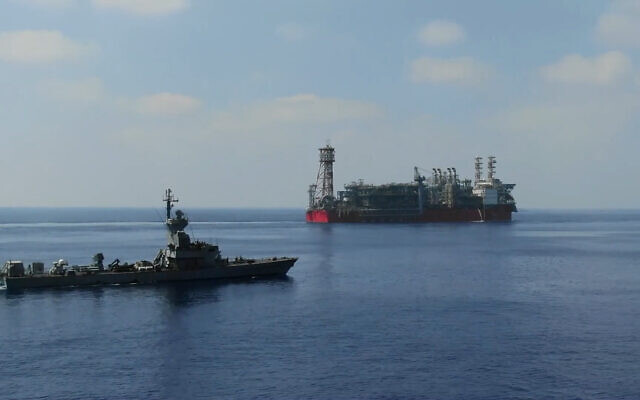Only a few days ago, Israel’s proposed maritime border agreement with Lebanon seemed like a sure thing, a beacon of hope in Israel’s adversarial relationship with its northern Arab neighbor.
But on October 6, a day after Yom Kippur, a sense of gloom set in following Lebanon’s sudden demand that significant modifications needed to be made for it to accept a draft proposal submitted to the two parties by U.S. mediator Amos Hochstein on October 2.
Details concerning Lebanon’s objections were not released, but the Lebanese government has refused to recognize Israel’s buoy-marked international border five kilometers off the coast of the northern town of Rosh Hanikra. Nor is Lebanon ready to demarcate its land border with Israel.
And Lebanon, which has been embroiled in a technical state of war with Israel since its creation in 1948, has objected to Israel’s suggestion that an agreement should be signed at a celebratory ceremony in the Lebanese border town of Naqoura.
It would not be surprising if Hezbollah — a powerful force in Lebanon and Israel’s arch enemy — forced the weak Lebanese government into adopting a harder position.
Hochstein’s proposal, aimed at reconciling competing claims to 860 square kilometres of lucrative natural gas reservoirs in the Mediterranean Sea, has not been fully disclosed. But it broadly assigned the Karish field to Israel and the nearby Qana field to Lebanon.
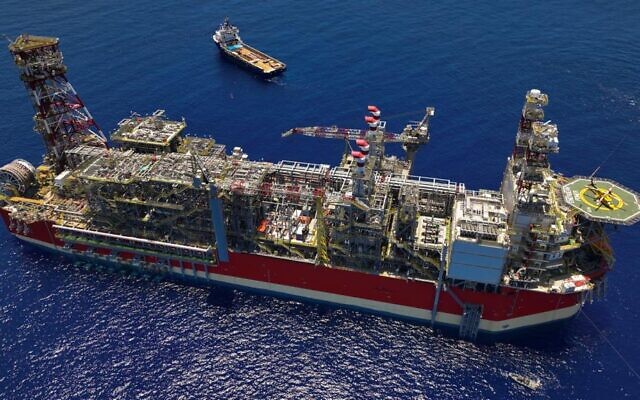
The Karish reservoir is slated to become operational soon. Energean, a British-Greek company, holds the exploration rights there. The Qana field has yet to be explored and probably will not be fit for drilling until about 2026. Work in the Qana field would be carried out by a European consortium consisting of TotalEnergies of France and Eni of Italy.
Israeli Prime Minister Yair Lapid abruptly rejected Lebanon’s proposed amendments, saying they would compromise Israel’s economic and security interests.
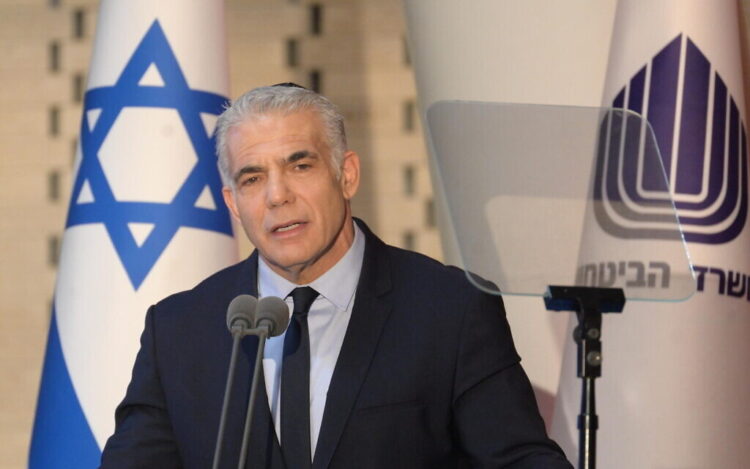
Amid this setback, Defence Minister Benny Gantz ordered the Israeli armed forces “to prepare for a scenario of escalation in the north, both offensively and defensively, given the developments in the negotiations on the maritime border.”
Their tough talk was at odds with the upbeat mood that had prevailed until recently.
Israel and Lebanon, which have been dealing with this contentious issue for more than a year now, both conveyed the impression that a breakthrough was possible, if not imminent.
Voicing confidence that a mutually satisfactory agreement could be reached, Lebanese Prime Minister Najib Mikati said, “Lebanon is well aware of the importance of the promising energy market in the eastern Mediterranean for the prosperity of all the countries in the region.”

In a tweet on September 19, President Michel Aoun said that negotiations had entered the “final stages.”
Last month, Foreign Minister Abdallah Bouhabib, said that both sides have an interest in resolving their differences. “The time is right for an agreement,” he said.
It would certainly be of immense value to Lebanon, which is struggling through its worst economic crisis in its modern history.
Even Hassan Nasrallah, the leader of Hezbollah, hailed the U.S. proposal, calling it “a very important step” and a comparing it to rescue package for the ailing Lebanese economy.
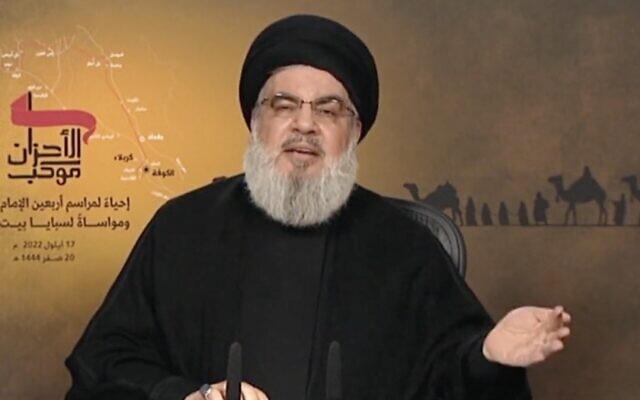
Although Israel has not officially greenlighted Hochstein’s proposal, Lapid and Gantz projected optimism about it, while criticizing opposition leader Benjamin Netanyahu’s harsh critique of it.
Campaigning to reclaim his old job as prime minister, Netanyahu reportedly told associates in private that the United States, Israel’s chief ally, was pressuring Israel to embrace the deal and was therefore meddling in Israel’s internal affairs and interfering in the November 1 general election.
And in public comments, he accused Lapid of surrendering to Hezbollah’s threats and declared he would not be bound by such an agreement.
Hochstein’s predecessor, David Schenker, disclosed two days ago that Israel had made sweeping concessions and that all of Lebanon’s demands would be met under the current deal.
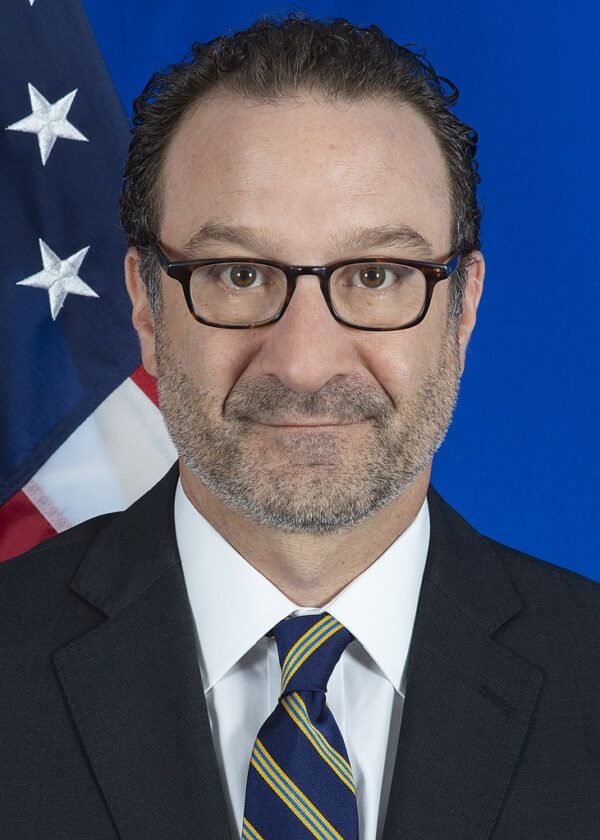
Lapid, in a tweet, lambasted Netanyahu, claiming he was undermining Israeli security interests and inadvertently helping Hezbollah, which has threatened to attack the Karish field should drilling begin before a formal agreement is signed.
This past summer, Israeli shot down three of four unarmed drones fired by Hezbollah at the field. On September 17, Nasrallah warned that Hezbollah missiles were “locked on” it.
Gantz, in a reference to the forthcoming election, accused Netanyahu of being guided by “irresponsible political considerations.”
In light of the latest situation, Netanyahu has claimed credit for Lapid’s rejection of Lebanon’s demand. “Only intense pressure from myself and my friends caused him to back away from this surrender agreement,” Netanyahu tweeted.
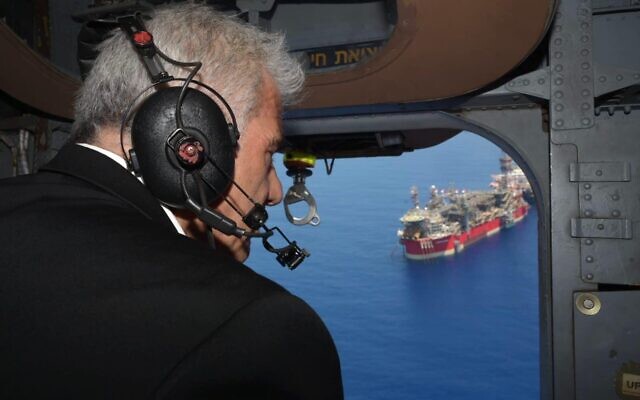
According to the current Israeli government, Hochstein’s proposal was acceptable. “The proposal safeguards Israel’s full security-diplomatic interests, as well as our economic interests,” Lapid said in an unambiguous endorsement.
Energy Minister Karin Elharrar claimed it would “calm the region,” help Lebanon rehabilitate its shaky economy, wean Lebanon off Iranian natural gas imports, remove Hezbollah’s threat to bomb the Karish field, and enable Israel to sell natural gas to Europe.
These are compelling arguments in favor of Hochstein’s proposal, but if Lebanon declines to cooperate, the region could well be thrust into a new round of warfare.
If Hezbollah torpedoes the talks, Gantz warned last month, Lebanon would suffer the consequences. As he ominously put it, “The price will be Lebanon.”
Despite the remaining obstacles blocking an agreement, Israel and Lebanon may yet find a solution. Billions of dollars worth of revenues are riding on it.
